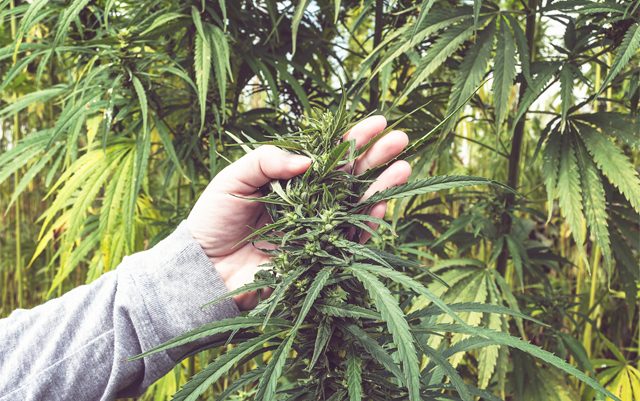One of the major milestones achieved in 2018 by the cannabis law reform movement was the federal legalization of hemp. No matter what your position on the legalization of marijuana, there has never been any real reason for hemp to be illegal, other than it looks like marijuana. Every single “drawback” someone who supports cannabis prohibition will name in denigrating marijuana does not apply to hemp. It won’t get you high so there is no reason to smoke it. You won’t go from smoking hemp to smoking more illicit fibers, like cotton or polyester.
You get the idea.
So the fact that industrial hemp was illegal to grow in the United States for several decades is something historians will have a hard time explaining to future generations other than the “it looks like marijuana so we imported it from other countries to make clothes, paper, food, etc.” line.
Even though the historical wrong of hemp prohibition has been righted – at least for the most part – some states still lag behind when it comes to updating their hemp laws. But now, an industry that has been held down for so many years can finally be unleashed.
“The federal legalization of hemp at the end of 2018 was a succession step in response to the Sec. 7606, known as the ‘Legitimacy of Industrial Hemp Research Act’ of the 2014 Farm Bill,” The Executive Director of the Hemp Industries Association, Colleen Keahey Lanier, told The Marijuana Times. “This progress came after a decade of work led by the organization Vote Hemp starting with the first iteration of the ‘Industrial Hemp Farming Act’ introduced by former U.S. Representative Ron Paul (R-TX) in 2005.”
While things were moving on the federal level, activists and lawmakers in some states did what they could to force progress as well. “Since 2014, I would say, Colorado, Kentucky, and Oregon led the state leadership necessary to build the spear leading to the break-through for hemp,” Colleen told us. “Currently, the U.S. Hemp Roundtable (USHRT), which launched in Lexington, Kentucky in 2017, is the country’s leading advocacy organization representing hemp farmers and stakeholders. The Hemp Industries Association joined as a non-profit member in 2017, and today serves on the Board of Directors. The USHRT has been actively engaged in Washington, DC and has been coordinating with principal Congressional offices, including Senate Majority Leader, Senator Mitch McConnell, to see this significant victory of hemp to success.”
Now the growth the hemp industry has seen in the last few years is poised to accelerate even further, although more work needs to be done. Since “the federal government will no longer take the position that hemp farming is under the purview of the Department of Justice and the Drug Enforcement Administration”, regulatory responsibility shifts to the U.S. Department of Agriculture. “The USDA is tasked with recommending regulations for state hemp programs and also recognizing that hemp is an agricultural commodity,” Colleen said. “However, it’s critical that people note that the 2018 Farm Bill does not dictate new law to the states to replace any existing state laws concerning controlled substances, hemp farming or hemp-derivative cannabinoid products. Despite the lack of comprehensive state-by-state laws and not knowing when the USDA will issue its official state regulatory plan, there is already a huge demand for hemp products nationwide.”
It’s not often that a new industry – especially one with an already-established customer base – emerges in the marketplace. It’s a new day for the world of hemp and many are ready to get started in an industry that is about to explode.






